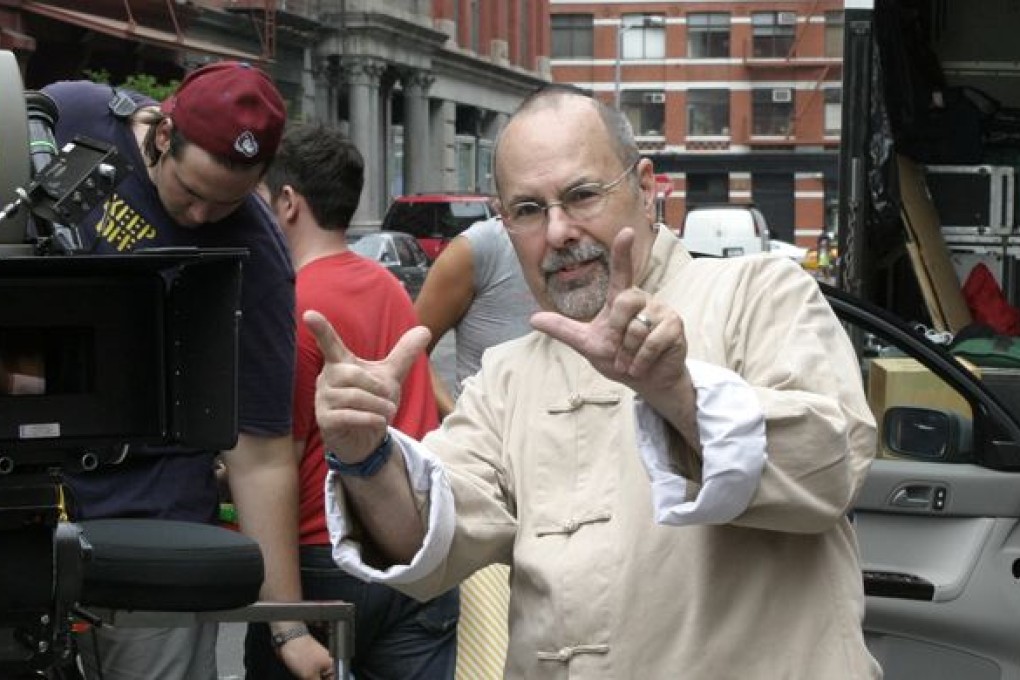Dov Simens
Named “America’s No. 1 Film Instructor” by the National Association of Film Schools, Dov Simens is a successful Hollywood production manager and producer-director, but is most famous for his one-of-a-kind two-day film school. Condensing regular film-school theory and education as well as learned-on-the-street reality into two days of practical information, his weekend crash-course covers every facet of filmmaking and has reportedly helped the likes of Quentin Tarantino, Spike Lee and Guy Ritchie launch their careers. He talks to Penny Zhou upon his second return to Hong Kong.

HK Magazine: How did you get into the film industry in the first place? What were your first jobs in the industry?
Dov Simens: In 1984, after 15 years of running bookstores, at the age of 40, I decided to become an independent filmmaker. I produced a feature film with a micro-budget of $12,500 and three days of shooting. Although the film won several festival awards, I couldn’t sell it. However, it led to me getting numerous jobs working with the producer-distributor Roger Corman, a man who had produced over 700 profitable feature films. Those experiences allowed me to learn how to make and distribute feature films cost-effectively and profitably.
HK: Why teach people how to make movies when you could be a full-time filmmaker yourself?
DS: This is simple—would you rather be “good” or “great?” At present, I have offers to produce feature films for the likes of Lionsgate, Summit Pictures and Sony. However, time is limited, and instead of being a “good producer”, I chose to use my time to be the “greatest film instructor in the world” and help people who have dreams. I apologize for my brashness, but when I present the “Hollywood 2-Day Film School” in Hong Kong, I know that of the 120 adults in attendance I will help each one of them to achieve their dream of becoming either a profitable writer, director, producer or actor.
HK: Could you briefly go through the topics you’ll cover in the upcoming lectures for us to get a grasp?
DS: Day one is “Filmmaking A-Z.” The course focuses on budgeting, scheduling, writing, directing, shooting and editing. The day starts by my pointing to someone in the class and asking them to select a dollar amount between US$20,000-US$1,000,000, which is the budget range for everyone’s first feature film. Then I tell them how to spend the money during a one-, two- or three-week shoot and get their film done.
Day two is “Dealmaking A-Z,” where I teach them how to market, publicize, distribute and sell that feature for profits by first attending film festivals and maximizing revenues from Hong Kong, then getting a license to China, the Pacific Rim nations, Europe and eventually securing a distributor for North America. Plus, I explain new ancillary revenues obtained for films from the product placement, branding, merchandising, e-gaming and music/book industries. The weekend then ends with learning all the Hollywood tricks on how to finance feature films with a budget from as low as US$20,000 to as high as US$20,000,000.
HK: What types of people benefit the most from your lectures?
DS: I can think of four groups of people in Hong Kong. First is professional producers and directors who desire to learn Hollywood producing, financing and distributing secrets. Second is non-professionals— first-timers who don’t want to spend upwards of US$200,000 at a four-year theory-laden film program. Third is filmmakers, writer-directors, not working day-in day-out in the film industry but desirous of obtaining their first opening title credit on a feature film that makes profits. Fourth is investors and financiers who’d like to understand how to make feature films that make profits, establish a distribution company and co-produce with both China and Hollywood.
HK: As an industry veteran, how do you think the filmmaking and film financing processes have changed over the years? Do you change your lecture content according to the evolution of the industry?
DS: Filmmaking has changed over the past 20 years due to the presence of electronic cameras, a film festival explosion, web growth and expansion of broadband, cloud computing with almost five billion smart-phones, theatrical multiplex construction and massive revenue stream increases. Taking cameras as an example: 20 years ago, 35mm and 16mm film cameras, along with corresponding laboratory processing and developing, were intimidating to first-timers. But today, thanks to electronic cameras, shooting and viewing is almost instant, resulting in more and more first-timers making and selling feature films. Also, 20 years ago you probably couldn’t name 15 film festivals in the world whereas now there are between 3,000 and 4,000 film festivals annually, resulting in more of an open market access to consumers for first-time filmmakers.